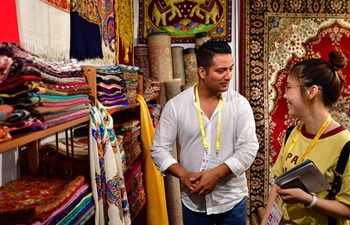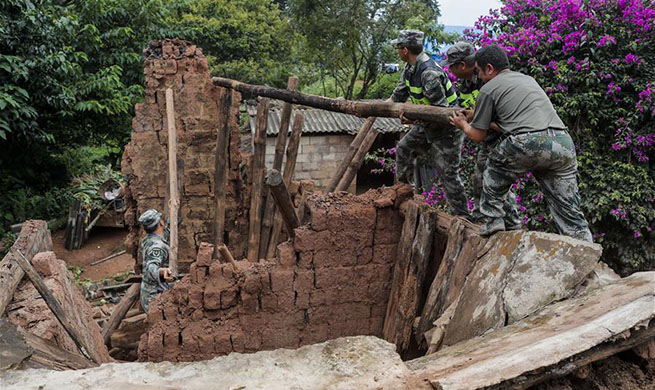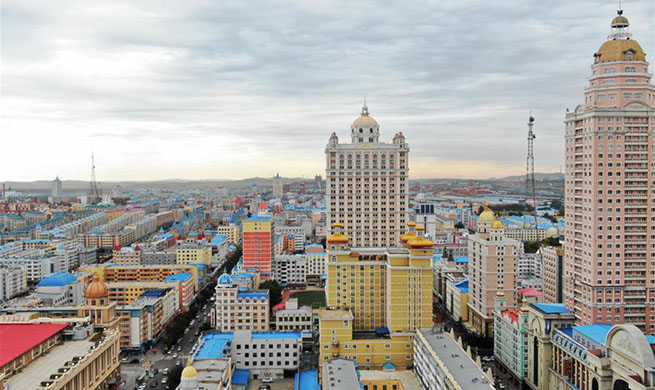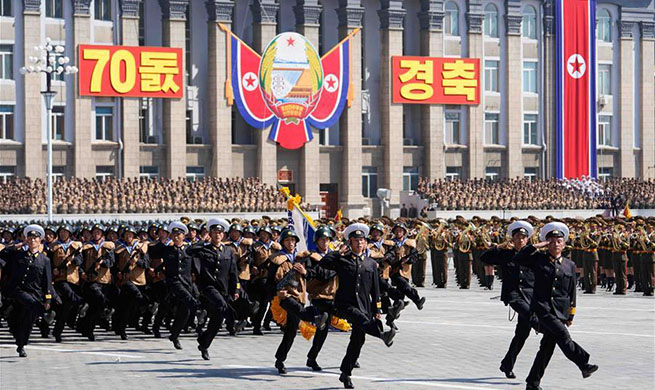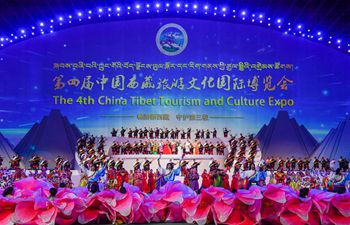BEIJING, Sept. 9 (Xinhua) -- It didn't take long to realize that the World Wrestling Entertainment (WWE) had arrived in China. The crowd were mildly invested in the first two matches in Shanghai's Mercedes-Benz Arena on September 1. Workmanlike performances by supernatural cult leader Bray Wyatt and the flamboyant Bobby Roode got the crowd off to a good start.
But once 16-time WWE champion John Cena's name appeared on the big screen, it quickly became clear who the people had come to see. Most performers on the night struggled to get the crowd involved, but not Cena, with his every movement in the ring drawing a reaction.
When he turned his attention to the crowd and addressed them in mandarin, the mood in the arena turned from excitement to rapt attention. It was a clear sign that WWE is serious about China.
Professional wrestling doesn't have a long history in China. While in Japan, the art form has a long backstory with various organizations bickering back and forth, it's unclear how big the market is in China, and indeed, if there would even be enough to argue about.
Ashley Desilva is a local independent professional wrestler who has performed all over the country, and wrestles under the ring name Ash Silva. He says that China is a fertile ground for professional wrestling.
"WWE coming to China and holding more events and expanding into China helps. That gives it more attention. Generally, [the presence of] MMA and Muay Thai helps wrestling as well. Some of these fans don't really understand the difference."
At the WWE event, Chinese wrestlers Xia Li, Big Boa and Tian Bing were in attendance, with John Cena calling these performers "the future of WWE in China".
Wrestling has a long history of creating characters and performers to attract specific demographics, such as Bruno Sammartino appealing to those with Italian roots and Eddie Guerrero engaging with Hispanic fans in the United States.
It's therefore no surprise that WWE has chosen Chinese performers in the hope of moving into potentially one of the world's most lucrative untapped markets.
But even though local performers are starting to become more involved, Desilva notes that overseas imports still play a large role in professional wrestling in China.
"I think the wrestling business in China is definitely improving. A lot of experienced foreign talent has come in. American and British wrestlers have been here and they've been able to help train local wrestlers, which raises the level here."
WWE signed a deal with Chinese streaming service PPTV in 2017 to showcase its product to the country's audiences. According to reports, WWE's international market makes up 70 percent of the company's viewership, but only 30 percent of its revenue.
"It's hard to tell how big it is going to be," admits Desilva. "One of the key things is that wrestling needs to be on TV. Not just WWE, but local promotions too. The more exposure it gets, the more people are going to be educated as to what they're watching, which is very important. WWE needs to be on more channels in China."
Fans streamed out of the Mercedes-Benz Arena having witnessed a main event where WWE champion Roman reigns, along with his stable "The Shield", put Scottish journeyman wrestler Drew McIntyre through a wooden table in the middle of the ring.
It was exactly the sort of overblown entertaining end to a show that WWE typically excels in, designed to have fans leave the arena on a happy note.
Those in attendance were definitely entertained, but a glance around the darkened arena showed something more important. They were invested in the stories. If WWE can find a way to keep eliciting that reaction, their China business will always be in good shape.






